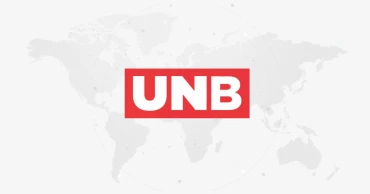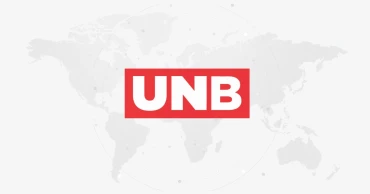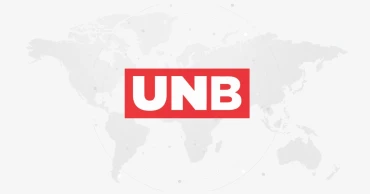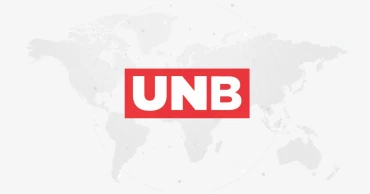washington
Beijing urges Washington to focus more on actions ‘conducive to Bangladesh’s stability’
China on Thursday reacted to China-related remarks by the US Ambassador to Bangladesh, urging the US side ‘to be more aware of its responsibilities, and focus more on actions’ that are ‘conducive to Bangladesh’s stability’ as well as the development and cooperation in the region.
"Such remarks by the US Ambassador to Bangladesh are irresponsible and utterly unfounded," said the Spokesperson at the Chinese Embassy in Bangladesh, refuting China-related remarks by the US Ambassador to Bangladesh.
The spokesperson said they confuse right and wrong, and are ‘completely out of ulterior motives’, according to the reaction shared by the Embassy from its verified Facebook page.
New US Ambassador to Bangladesh raises concern over China’s regional influence
Over the past 50 years since the establishment of diplomatic ties, the spokesperson said, Bangladesh and China have always supported each other, treated one another as equals, and engaged in win-win cooperation.
"The China-Bangladesh cooperation has delivered benefits to and received broad support from the people of both countries. It is conducive to the development and stability in the region," said the spokesperson.
China said the cooperation between Bangladesh and China is a matter between the two countries and their peoples, and brooks no interference or finger-pointing by the US side.
Newly appointed US Ambassador to Bangladesh Brent T Christensen on Wednesday said he is concerned about broader Chinese influence in South Asia, stressing that they have a host of options available to try to help their partner militaries meet their capability needs.
‘You know, as I said in my hearing…I am concerned about broader Chinese influence in South Asia. I think the United States government has been very clear about that," he said while responding to a question during an interaction with a small group of journalists.
US doesn't take sides in Bangladesh elections: Ambassador Christensen
"And as I committed to my hearing, I will always engage with our friends in the government—be it the interim government or the newly elected government-- to clearly articulate the risks of involvement with the Chinese in certain areas should the Bangladesh government choose to go down that path," Ambassador Christensen said.
26 days ago
Dhaka, Washington discuss upcoming elections, economic, Rohingya issues
Bangladesh and the United States have discussed upcoming elections in Bangladesh, economic and trade relations, Rohingya issue and regional matters.
National Security Adviser Dr. Khalilur Rahman met Allison Hooker, Under-Secretary of State for Political Affairs and Paul Kapur, Assistant Secretary of State at the State Department in Washington DC and discussed the issues.
In the meeting with Under-Secretary, Dr. Rahman briefed Ms. Hooker about the preparations and arrangements for the upcoming general elections and expressed appreciation for the support of the US to the interim government during its tenure, including for the elections, said Chief Adviser’s press wing on Saturday.
Russia deploys new ballistic missile in massive strike on Ukraine, signaling the west
Hooker responded that the US continues its strong support for the democratic transition in Bangladesh and looks forward to a free and fair elections in February.
Dr. Rahman underscored the prospects of increased trade between the two countries following substantially enhanced Bangladeshi import of American farm products.
He requested Hooker to ease travel of Bangladeshi businesspeople to the US in the context the of the recent visa bond, and if possible, to exempt B1 short term business visa for Bangladeshi businessmen from the visa bond.
Hooker recognised the matter and assured that the US government will positively consider the step.
She also indicated that if the overstay by the tourists declines substantially in future, the US might review the bond requirements that have been put in place.
She also expressed deep appreciation for the cooperation of Bangladesh to the return of undocumented Bangladeshis.
1 month ago
Zelenskyy to meet Trump in Washington after US-Russia summit yields no deal
Ukrainian President Volodymyr Zelenskyy said Saturday he will meet U.S. President Donald Trump in Washington on Monday, following Trump’s summit with Russian President Vladimir Putin, which produced no agreement to end the war in Ukraine.
Zelenskyy said he had a “long and substantive” conversation with Trump on Saturday after the U.S. leader met Putin in Alaska. He thanked Trump for the invitation to meet in person and said the two leaders would “discuss all of the details regarding ending the killing and the war.”
Highlighting Europe’s role, Zelenskyy said, “It is important that Europeans are involved at every stage to ensure reliable security guarantees together with America. We also discussed positive signals from the American side regarding participation in guaranteeing Ukraine’s security.”
Zelenskyy spoke to Trump one-on-one, followed by a call with other European leaders. The discussions lasted about an hour and a half.
The US-Russia summit in Alaska saw Trump welcome Putin, but ended without tangible progress on ending the war. Trump said, “there’s no deal until there’s a deal,” after Putin claimed the two leaders had reached an “understanding” on Ukraine and warned Europe not to “torpedo the nascent progress.”
Trump leaves Alaska summit with Putin without a Ukraine peace deal
Before leaving Alaska, Trump told Fox News Channel that the responsibility might fall on Zelenskyy “to get it done,” while also acknowledging European involvement.
After returning to Washington, Trump spoke with NATO leaders following his call with Zelenskyy but did not speak to reporters. White House Press Secretary Karoline Leavitt confirmed the discussions included German Chancellor Friedrich Merz, French President Emmanuel Macron, British Prime Minister Keir Starmer, Italian Prime Minister Giorgia Meloni, Finnish President Alexander Stubb, Polish President Karol Nawrocki, European Commission President Ursula von der Leyen, and NATO Secretary-General Jens Stoltenberg.
European leaders, who were not part of Friday’s summit, had no immediate comment.
Meanwhile, Russian attacks on Ukraine continued overnight. Ukraine’s Air Force reported one ballistic missile and 85 Shahed drones were launched, 61 of which were intercepted. Front-line areas in Sumy, Dnipropetrovsk, Donetsk and Chernihiv came under attack.
6 months ago
2 Israeli Embassy staff shot dead near Jewish Museum in Washington
Two Israeli embassy staff members were shot and killed Wednesday evening near the Capital Jewish Museum in Washington, D.C., according to Homeland Security Secretary Kristi Noem.Noem confirmed the incident in a post on X, noting that the shooting occurred just steps from the FBI’s Washington field office.
EU to lift Syria sanctions, keep measures on former Assad regime
U.S. Attorney General Pam Bondi stated she was present at the scene along with former judge Jeanine Pirro, who currently serves as the U.S. attorney in the capital.Israel’s ambassador to the United Nations, Danny Danon, condemned the attack, describing it as a “depraved act of anti-Semitic terrorism.”
Germany's economy will stagnate this year as tariffs cast a shadow: advisers
As of late Wednesday, police had not disclosed any details about the motive. Authorities were expected to hold a press briefing later that night.“We are confident that U.S. authorities will take decisive action against those behind this criminal act,” Danon wrote on X. “Israel will continue to take firm steps to protect its citizens and representatives worldwide.”
8 months ago
Former President Bill Clinton hospitalised
Former U.S. President Bill Clinton has been admitted to MedStar Georgetown University Hospital in Washington following a fever, according to his spokesperson.
The 78-year-old was hospitalized Monday afternoon for observation and tests, as stated by his deputy chief of staff, Angel Urena. Clinton is reportedly in good spirits and appreciates the care he is receiving.
Biden's final overseas tour to include Pope Francis and PM Meloni
Clinton, a Democrat who served as president from January 1993 to January 2001, recently addressed the Democratic National Convention in Chicago and supported Democratic Vice President Kamala Harris in her unsuccessful presidential campaign earlier this year.
Over the years, Clinton has faced several health challenges. He underwent quadruple bypass surgery in 2004 after experiencing chest pain and shortness of breath. The following year, he required surgery for a partially collapsed lung, and in 2010, he had two stents implanted in a coronary artery.
To improve his health, Clinton adopted a primarily vegan diet, which helped him lose weight and boost his overall well-being.
Extreme heat at Colorado airshow sickens about 100 people with 10 hospitalized, officials say
In 2021, he was hospitalized in California for six days due to a urological infection that had spread to his bloodstream. Though serious, he avoided septic shock and was placed in a hospital section with intensive care capabilities, but did not require ICU treatment.
Clinton's spokesperson has assured the public that he is recovering well and remains in positive spirits.
1 year ago
Trump brings chaos back to Washington by attempting to kill bipartisan budget deal with Musk's help
President-elect Donald Trump effectively derailed bipartisan budget negotiations on Wednesday, rejecting the proposed legislation and accusing it of favoring Democrats. Billionaire Elon Musk, a close ally, played a key role in stirring opposition through social media, rallying Republican lawmakers and constituents against the bill.
In a joint statement with Vice President-elect JD Vance, Trump dismissed the measure and called for renewed negotiations. Musk, who is set to co-lead a task force on government efficiency with entrepreneur Vivek Ramaswamy, launched a social media campaign against the bill, labeling it an example of overspending. On his platform X, Musk threatened to support primary challenges against any lawmaker backing the legislation. Trump echoed the sentiment, amplifying Musk’s rallying cry, “Stop the steal of your tax dollars!”
Trump named Time Person of the Year 2024
The budget deal’s collapse highlights Musk’s growing political clout. Rep. Andy Barr of Kentucky reported an influx of calls from constituents influenced by Musk’s posts, stating, “The people who elected us are listening to Elon Musk.”
Trump and Vance urged Republicans to tie the debt ceiling extension to the budget deal, arguing it was better addressed while President Joe Biden is still in office. “Let’s settle this debate now rather than during our administration,” they said.
The setback created uncertainty for House Speaker Mike Johnson, who negotiated the bill and faces a re-election challenge as Speaker. The slim Republican majority in the House increases the risk of renewed leadership disputes.
Lawmakers were blindsided by Trump’s opposition, with many attending year-end celebrations when the announcement was made. Senior Republican appropriator Rep. Steve Womack commented, “Nothing surprises me anymore.”
The Biden administration criticized Republicans for jeopardizing the bipartisan deal, warning of the potential harm to Americans. White House Press Secretary Karine Jean-Pierre urged Republicans to prioritize stability over politics.
Biden grants clemency to over 1,500 individuals in historic single-day action
While Musk’s involvement thrilled some, like Rep. Dan Bishop of North Carolina, others expressed concern about his lack of political experience. Grover Norquist, a veteran of budget battles, praised Musk’s influence but questioned his expertise in legislative matters, saying, “He doesn’t know politics like he knows physics.”
Despite Musk amplifying some false claims about the bill, such as an alleged $3 billion allocation for a football stadium, he declared victory after the budget deal’s rejection, calling it “a good day for America.”
House Democratic Leader Hakeem Jeffries warned Republicans of the consequences of abandoning the agreement, stating, “You break the bipartisan agreement, you own the consequences.”
1 year ago
Dhaka, Washington agree to deepen ties to expand trade, strengthen anti-militancy efforts
Foreign Minister Dr Hasan Mahmud on Wednesday (January 17, 2024) said Bangladesh has agreed to deepen ties with the United States through expansion of trade and strengthening efforts to combat “militancy and fanaticism.”
"We have expressed our commitment to work together," he told reporters after his separate meetings with US Ambassador Peter Haas and European Union Ambassador Charles Whiteley at his office at the Ministry of Foreign Affairs.
The Foreign Minister said the rise of fanaticism is a problem worldwide.
Responding to a question, he also said there has been exploration of oil offshore.
Bangladesh, China discuss promoting FTA negotiation and attracting investment
The Foreign Minister said there are oil reserves as discovered by a US company.
He said Bangladesh and the US have cooperation in the defence area and they have discussed the issue.
The Foreign Minister said he has discussed the Rohingya repatriation issue with both the ambassadors.
He said Bangladesh wants Rohingyas to return to their homeland with full rights.
EU to start negotiations on Partnership Cooperation Agreement very soon, says Charles Whiteley
Hasan Mahmud said Bangladesh is now hosting around 15 lakh Rohingyas, and the number is growing . "It's a burden for us."
Talking to reporters, US Ambassador Peter Haas said he looks forward to working closely with Bangladesh in the coming months on issues of mutual importance.
He mentioned climate change, expanding business opportunities, and other areas of cooperation to advance the relations.
"I look forward to working very closely in the coming months to advance our mutual interest," said Ambassador Haas.
Referring to the meeting with the Foreign Minister, he said it was an opportunity to talk about the future of the US-Bangladesh relationship.
Lavrov to Hasan Mahmud: Russia-Bangladesh ties based on solid foundation of friendship
Regarding his meeting with EU Ambassador Whiteley, the Foreign Minister said they discussed the Partnership Cooperation Agreement (PCA) so that both sides can reach a fruitful position through negotiations.
2 years ago
Aware of Moscow's ‘deliberate mischaracterization’ of US foreign policy, Ambassador Haas’ meetings: Washington says
The United States has said it is aware of Russian Foreign Ministry Spokeswoman Maria Zakharova's “deliberate mischaracterization” of US foreign policy and US Ambassador to Bangladesh Peter Haas’ meetings.
“The United States does not support any political party in Bangladesh. Nor does the United States favor one political party over another,” a State Department spokesperson said on Saturday (November 25, 2023).
The US State Department reiterated that they want what the Bangladeshi people want: free and fair elections conducted in a peaceful manner.
USA will support Bangladesh after election: Momen
To support that shared goal of free and fair elections conducted in a peaceful manner, the US embassy personnel engage and will continue to engage with the government, opposition, civil society, and other stakeholders to urge them to work together for the benefit of the Bangladeshi people, said the State Department spokesperson.
Maria Zakharova, during a weekly briefing on November 22, said that Russia has spoken repeatedly about the attempts by the United States and its allies to influence the internal political process in Bangladesh, ostensibly under the banner of ensuring “transparency and inclusiveness” in the upcoming parliamentary election.
Information has come to light regarding a meeting at the end of October between US Ambassador to Bangladesh Peter Haas and a high-ranking representative of the local opposition, according to the Russian side.
They reportedly discussed plans to organize mass anti-government protests in the country during the meeting, the Russian side said.
In particular, the American Ambassador “promised” the representative of the opposition information support in the event that the authorities use force against participants in “peaceful demonstrations.”
These assurances were purportedly made on behalf of the embassies of the United States, Britain, Australia and several other countries, according to a Facebook post shared by the Russian Embassy in Dhaka.
China's cooperation is vital in ending Russia-Ukraine war: French FM
"How can these actions of the American Ambassador to Bangladesh be regarded? They can be seen as nothing less than gross interference in the internal affairs of a sovereign state on the part of Washington and its satellites, demonstrating open disregard for the norms and rules enshrined in the 1961 Vienna Convention on Diplomatic Relations," the Russian spokeswoman said.
"On our part, we have no doubts regarding the ability of the Bangladeshi authorities to hold the parliamentary election scheduled for January 7, 2024, in full compliance with national legislation, independently, without the help of overseas well-wishers," said the Russian spokeswoman.
2 years ago
US Secretary of State outlined how they engage with govts, workers to protect labor rights: State Dept Spokesperson
The United States has said it will continue to engage with the government, opposition, civil society, other stakeholders to urge them to work together for the benefit of Bangladeshis, to ensure “free and fair” elections conducted in a peaceful manner.
“We do not take a position in favor of one party or the other. We want what the Bangladeshi people themselves want: free and fair elections which are conducted in a peaceful matter,” Spokesperson at the US Department of State Mathew Miller told reporters in a regular media briefing in Washington on November 20.
Read: No political issues on agenda for foreign secretary's meeting with Indian counterpart: Momen
The US State Department spokesperson again mentioned the attempt to draw him into Bangladesh’s internal issues, and reiterated that he is going to continue to refrain from doing so.
“So I appreciate the urge – the repeated urge, I should say – to try and draw me into internal Bangladeshi matters, but I am going to continue to refrain from doing so and just state, as I said before, that our goal for the election in Bangladesh is what it has always been: free and fair elections conducted in a peaceful manner,” he added.
Miller also said the US Secretary of State outlined how they engage with governments, workers, labor organizations, trade unions, civil society, and the private sector around the world to protect and promote respect for internationally recognized labor rights.
Read: US to hold accountable those who threaten, intimidate, attack union leaders, labour rights defenders, labour orgs
“We will continue to do that in Bangladesh and elsewhere in the world,” he said.
“We condemn the recent violence against workers in Bangladesh protesting over the minimum wage, as well as the criminalization of legitimate worker and trade union activities,” Miller said.
He said they are also “concerned” about the ongoing repression of workers and trade unions.
“Our principle, as we have stated before, is that government must ensure that workers are able to exercise their rights to freedom of association and collective bargaining without fear of violence, reprisal, or intimidation,” Miller said.
Read: It's up to Bangladeshis, their democratic system, says India about polls
Through their work in Bangladesh and elsewhere in the world, the US State Department spokesperson said they are firmly committed to advancing those fundamental human rights.
2 years ago
Washington keen to expand trade, create job opportunities for Bangladeshis and Americans: Congressman Joe Wilson
Congressman Joe Wilson, the Co-Chair of Bangladesh Caucus at the US Congress, has praised Bangladesh’s impressive economic progress and said that the United States is looking forward to expanding trade ties and creating job opportunities for people of both the countries.
Wilson, a congressman elected from South Carolina, was speaking as the chief guest at a reception hosted by Bangladesh Embassy in Washington DC on Thursday (July 20) evening to celebrate the long-standing partnership between Bangladesh and the US.
Bangladesh Ambassador to the United States Muhammad Imran delivered the welcome address.
US engages directly with Bangladeshi officials to discuss ‘shared priorities’: State Dept
Elizabeth Horst, Principal Deputy Assistant Secretary, Bureau of South and Central Asia, State Department, and Brian Luti, Director for South Asia Regional Affairs, the National Security Council, the White House, spoke at the event as guests of honour. Former congressman Jim Moran also spoke on the occasion.
While appreciating Bangladesh’s economic development, Congressman Wilson mentioned the country’s strides to move towards a trillion dollar economy, and achievements in reducing poverty.
Bangladesh is an important country in South Asia and its people are hard working, Wilson said, and added that he introduced a resolution in the House of Representatives this week commending Bangladesh for hosting the Rohingyas.
This type of political violence has no place in democratic elections: US State Dept on Hero Alam assault
In his welcome address, Bangladesh Ambassador Muhammad Imran welcomed the guests at the reception and extended sincere thanks to Congressman Joe Wilson for his encouraging remarks about Bangladesh-US relations and Bangladesh’s socioeconomic development.
Turning to Bangladesh’s impressive socioeconomic transformation under the dynamic leadership of Prime Minister Sheikh Hasina, the ambassador said the government has been working towards economic growth by creating equal opportunities for all and ensuring an inclusive society.
US Southwest swelters under dangerous heat wave, with new records on track
Ambassador Imran expressed gratitude to the US for its continued support and the humanitarian assistance for the Rohingyas, temporarily sheltered in Bangladesh.
Elizabeth Horst, in her remarks, said in the last five decades, Bangladesh and the US have built a robust and broad partnership and the partnership is anchored by shared vision for a prosperous, peaceful and democratic Bangladesh.
Brian Luti, Director for South Asia Regional Affairs, the National Security Council, said the United States recognizes, respects and supports Bangladesh’s guiding principle: “Friendship to all and malice to none.”
The US simultaneously respects Bangladesh's national security and sovereignty, as well as international laws and principles enunciated by the UN charter, he said.
Alternate Executive Director of World Bank Dr. Ahmad Kaikaus, ambassadors of Malaysia, the Maldives, Sri Lanka and Sudan as well as diplomats of different countries, senior officials of the US government and State Department, academicians and members of the civil society joined the reception.
On the occasion, traditional Bangladeshi handicrafts were displayed and Bangladeshi foods were served to the guests.
2 years ago



















